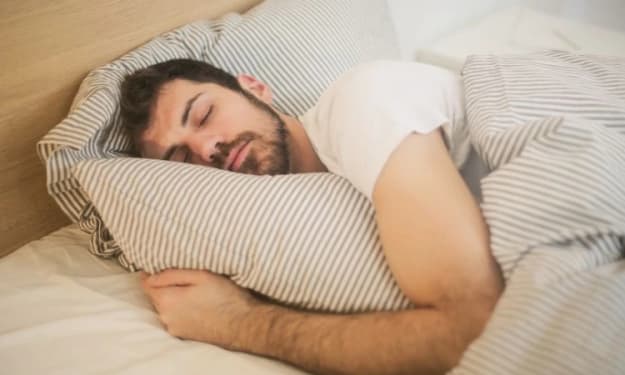Benefits of Exercise on Mental Health
Mental Health Should Be Prioritized

Mental health should be prioritized.
This story was first published on Attackonfatloss.com
All of us should prioritize our Mental health. But unfortunately, life can be full of stress and anxiety. Between our job, kids, bills, people "testing" us, and money- our lives can be a stress-filled nightmare.
When you think about all the stress we might encounter daily, it is hard not to see why so many of us develop anxiety disorders or become depressed.
Anxiety disorders affect 40 million adults in the U.S. every year. In 2017 alone, 17.3 million adults experienced at least one major depressive episode.
Now, let's add the stresses of losing weight and getting in shape to the mix.
Things like:
Not losing weight fast enough
Comparing ourselves to other people
Dealing with cravings, etc.
All of this can put an enormous amount of pressure on us.
As a personal trainer who lives with anxiety, I have experienced firsthand how it can affect my inability to stop myself from binging and my unwillingness to work out.
How Mental Health Can Affect Our Fitness Journey:
- Continuous psychological stress can affect our energy levels and reduce muscle recovery.
- In a study by Kistenmacher et al., mental stress raised cortisol levels in all participants. It also resulted in 80% of "stress-eaters" eating 41% more food. This is especially troublesome as overweight people who are experiencing stress eat more food than those of average weight.
- Stress could make it more likely to skip the gym.
- High-stressed people may see lower strength gains than those who are low-stressed.
- Stress can hurt short-term muscular recovery from lifting weights.
Tips to improve our mental health:
Seek professional help.
First and foremost, you should talk to a professional. The Anxiety and Depression Association of America has great resources to guide you in finding the help you need.
Use stress-relieving activities that don't involve eating
Many of us turn to food when stressed out.
According to the American Psychological Association, 33% of adults who report overeating do so because it distracts them from stress. While 34% of those who overeat to cope with stress say, this has become a habit.
A study by J Westenhoefer et al. found that those who coped with stress had higher success in weight loss maintenance than those who didn't.
Be more active.
Being more active has been shown to help our mental health.
Exercise is associated with reductions in depression and anxiety. Conversely, being sedentary has been related to the development of psychological disorders.
Those who exercise regularly tend to deal better with stress and anxiety than those who don't.
Find something. Anything.
Find something fun and that you look forward to doing.
Adherence is the number one factor in sticking to a workout program. The more fun you have, the more you'll stick to it, and the more it will help your mental health.
Researchers have found that physical activity (any activity) can positively impact our mental health.
If you love dancing, join a salsa class. You could practice yoga, taichi, or meditate (we meditate and love it).
If you are super competitive, you could join an adult sports league. A study in 2020 found that playing sports decreased depression symptoms in college students.
Go for a walk.
Walking is a great way to lower stress levels and reduce the symptoms of depression and anxiety.
A 2012 meta-analysis found that going out for walks can help decrease symptoms of depression.
While walking in nature lowers stress levels more than walking on a treadmill.
Researchers have also found that walking decreases anxiety more than HIIT and steady-state cardio.
Learn the many benefits of walking 10,000 steps a day.
train for something big.
Training programs that last months reduce depression and anxiety more than those that only last a few days.
If you ever wanted to train for a marathon, an ultramarathon, a triathlon, a tough mudder, ANYTHING! This is the sign you've been waiting for!
Find people that'll cheer you on.
An online survey of more than 5,400 people found that those who had higher social support were more likely to exercise for more than 2.5 hours per week. Those participants were also less likely to report problems with mood/depression.
Whether by working out with a friend or family member or joining great communities like CrossFit, find people who will push you and cheer you on.
Consider taking supplements.
A few supplements have shown benefits for our mental health.
Omega 3
A 2011 study found that students who took 2.5 grams of Omega 3 daily showed a 20% decrease in anxiety symptoms than the placebo group.
In a 2014 study, researchers looked at the effects of Omega 3 on depressed young adults.
Researchers found that after 21 days, 67% of participants who took 1.4 grams of Omega 3 daily no longer met the criteria for being depressed compared to 20% of those who took a placebo.
Ashwagandha
Ashwagandha is a medicinal herb that grows in India, the Middle East, and parts of Africa.
A systematic review found that Ashwagandha supplementation lowered stress levels by 44% and anxiety by almost 57% compared to placebo.
Cbd
In a 2011 study, researchers found that giving 400mg of CBD to participants living with social anxiety disorder experienced reduced anxiety levels than those on a placebo.
Listen to soothing music.
In a 2013 study, researchers found that listening to soothing music before completing a stressful task lowered stress levels faster than those who didn't.
Have a full night of sleep.
The Anxiety & Depression Association of America states that stress and anxiety can cause people to develop sleeping problems and make them worse for those who already have them.
A 2018 study found that chronic sleep deprivation increases the risk of depression in young women.
Waking up every day at the same time, including weekends, avoiding alcohol before bedtime and caffeine past lunchtime, and creating a bedtime routine are good ways to improve our sleeping habits.
Check out our article about how mental health can cause you to lose sleep and some tips to help you have a full night's sleep.
Limit caffeine
Research has shown that drinking too many cups of Joe can worsen anxiety symptoms. Furthermore, caffeine taken 6 hours before bedtime can significantly reduce sleep duration.
Bottomline
Living with chronic stress, anxiety or depression doesn't mean you have to put your fitness goals on hold.
Get help, follow some of these tips and kick some ass.
As the presidents of your fan club, you better believe we are cheering you on.
About the Creator
Delwin Marrero
I'm just a personal trainer pretending to be a good writer.
I started writing in April 2022 due to my newfound love for Dungeons & Dragons.
Inspiring me to transport myself into fantastic worlds and incredible stories.






Comments
There are no comments for this story
Be the first to respond and start the conversation.